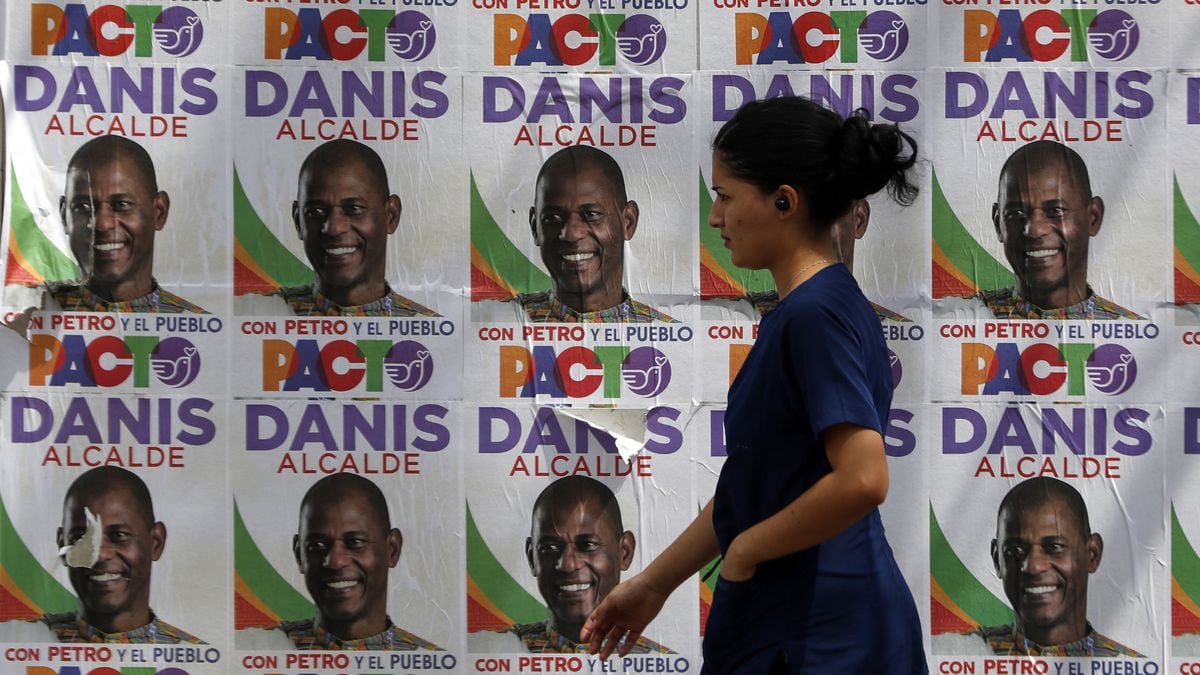The wave of change that brought Gustavo Petro to power in 2022 did not start with him. A few years earlier, in the 2019 local elections, non-traditional candidates gave the first warning that Colombians were tired of traditional power. In large cities such as Bogota, Medellin or Cali, the triumph of candidates far from the usual parties and with a certain progressive nuance marked the elections. A desire for change that grew in the hands of candidate Petro and culminated in the election of the first left-wing government in Colombia's modern history. This Sunday, citizens return to the polls to elect governors and mayors. And more than measuring the president's popularity, the strength that brought him to power and is already showing the first signs of exhaustion will be put to the test.
Despite the attempts of the media and analysts to read this local election day in a national key, several details prevent the results from being turned into a plebiscite on the president. First of all, these elections elect those who extend the electric lighting network, build nursery schools or pave roads. Regardless of the ideology or party that supports it, citizens tend to vote for the person who will lead the mandate. Even more so in this scenario, in which the political forces have multiplied to reach 37 different brands.
Second, the Historical Pact, Petro's party, barely presents candidates. Although the original idea was to strengthen the coalition in the territories to accompany the work of the central government, the difficult internal relations between the different forces that make it up and the rapid fall in Petro's popularity have prevented the appointment of consensus candidates. In the most important cities of the country it does not have candidates or has candidates with no chance of winning, as well as in the main governorships. Beyond Bogota, the president has little to lose or gain. In the capital, however, his honor is at stake so as not to pass the first elections that cross his term in office.
He imposed this pressure on himself by making some pro-government events and marches coincide with the local campaign, which for many was read as a veiled way of promoting his candidate, Gustavo Bolívar, despite being banned. Bolívar also spoke ahead of time by tying his victory to the future of the coalition. "In the Mayor's Office of Bogota, the survival of the Historical Pact is at stake," he said at the beginning of the campaign. His words and his remote chances of being elected, although he could force a second round if his results are better than the polls anticipate, have turned the battle for Bogotá into the president's battle.
At the top of all the polls in the capital is Carlos Fernando Galán, a centrist politician and son of presidential candidate Luis Carlos Galán, who was assassinated in 1989 on the orders of the Medellín cartel. In 2019, Galán came second in voting intentions behind Claudia López, one of the greatest exponents of that wave of change in 2019 and who ends her term with almost 60% disapproval. It's not the only second that could succeed now. Also in Bucaramanga and Cali, in the midst of low popularity ratings of the outgoing mayors, the second most voted are the favorites.
In the rest of the country, the territorial clans and the traditional power are once again starting with an advantage in the electoral pulse to dynamite that alternative wave of four years ago. In the regions, clans, families, networks and impossible coalitions that support one or another candidate work more than parties thanks to agreements that can respond to everything but the ideological question. An example of this is Alejandro Char, whose powerful family is linked to numerous cases of corruption, but where no one overshadows him in the Barranquilla mayor's office. That was the power that was repudiated in 2019, but that could return with renewed strength this Sunday.
In Medellín, the country's second-largest city, the turnaround four years ago came as a huge surprise. An unknown Daniel Quintero, who arrived by signatures, managed to unseat Uribism in its territorial fiefdom. His term has ended under the shadow of corruption and with a city united in its rejection. Fico Gutiérrez, who was already mayor of the city, will most likely win again and, although he dresses up as an independent with a new party of his own, he was the candidate of the entire right and traditional power in the 2022 presidential elections.
Monday's headlines will once again tie the results to President Petro's fate, but his fate will continue to be played out after this appointment. In a profoundly presidential country, territorial elected officials need funding from the central government to carry out their promises, so it is not entirely certain that the opposition from the regions will be frontal. The Executive will take advantage of this need so as not to remain isolated.
In any case, Petro will have to take good note of what happens on Sunday. Regardless of what happens in Bogota, if the results confirm what the polls say, the country that a few years ago embraced alternative politicians is once again seeking shelter in the same old hands. That will be the clearest message that will come out of the polls and that goes straight to the heart of the national government.
Subscribe here to EL PAÍS's newsletter about Colombia and here to the WhatsApp channel, and receive all the key information on the country's current affairs.

